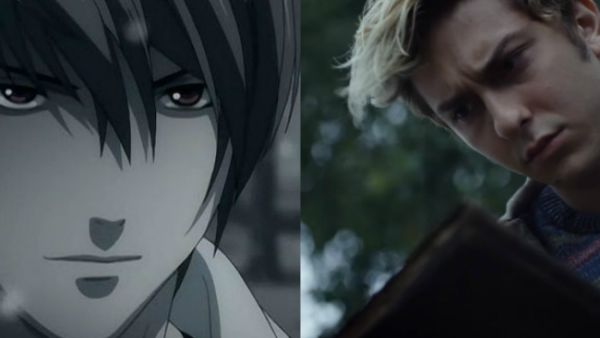Death Note is one of the most popular anime series ever made, but does it work as a movie?
Death Note concerns one Light Yagami, a model high school student. Smart, hard-working, athletic, and popular, Light nonetheless harbors a simmering rage against injustice, and wishes he could rid the world of what he deems to be evil.
Fortune favours him when a death god named Ryuk drops a death note, a notebook in which you can write the name of the person you want killed and the state in which you want them to die. Light makes use of this notebook, killing criminals he deems worthy of capital punishment. But in doing so, he attracts the attention of the police—and an eccentric detective named L (just L) who begins a cat-and-mouse game to chase “Kira,” the egotistical persona Light creates to kill, down.
The show was made into two Japanese films in 2006, Death Note and Death Note: The Last Name, with a handful of spin-off films. They mostly got OK reviews. Now Netflix has given the show a crack of its own.
But how are the results?
Well, you can check them out for yourself; Death Note is on Netflix. But you may not want to invest the time.
The Verge is unhappy with the film: “Wingard’s film misunderstands what makes this series great on a fundamental level. The plot moves at breakneck speed, at times making it feel like a recap of the original story, rather than its own narrative. It bastardizes the basic elements of the series to better serve its empty-calorie interpretation. It’s Death Note by way of Final Destination, a film more focused on cyberpunk-esque visuals and crunchy synth than on any kind of substance.”
Firstpost wrote, “Butcher.
“That is what director Adam Wingard has managed to do to one of the smartest shows to ever hit our TV screens. He took the Death Note story, stripped away the best parts, added completely unnecessary scenes and served up something which is more plot hole than movie.”
One of the bigger points of criticism has been changing Light’s character from model Japanese student to bullied high school student, which The Guardian notes before saying: “The runaway plot also means that the characters are left frequently underserved, shifts in motivation and morality happening within the blink of an eye. The young cast manage well enough, with Short Term 12 and Atlanta breakout Stanfield of particular interest (his shadowy, sleep-deprived pursuer deserving of his own origins tale), but they deserve more than what they’ve been left to work with. The finale in particular, despite an ambitious set piece, doesn’t really gel, the swell of emo romance proving to be less tasty than the reckless horror that came before.”
The New York Times is also critical: “Perhaps stifled by the cultural and commercial clout of its source material (a multimedia juggernaut of books, movies, television shows and a stage musical), “Death Note” feels rushed and constricted. As a result, what should have been Light’s incremental surrender to godlike power becomes an instantaneous embrace, and what ought to have played out as an extended manhunt is resolved with embarrassing ease.”
The Los Angeles Times was not too keen, either: “Wingard mounts some impressive set pieces, such as a climactic ferris wheel disaster; and he does well when he delves into the larger social resonance of Lord Kira, who inspires some lively philosophical debates.
“But this “Death Note” is snappily paced to a fault. For a film 10 years in the making, it sure feels like everyone involved is in a hurry to get it over with.”
But perhaps the best condemnation comes from Al Bawaba’s Mohammed K., who says, “Death Note…was an extreme disappointment.”
Ouch.
Read related stories:







